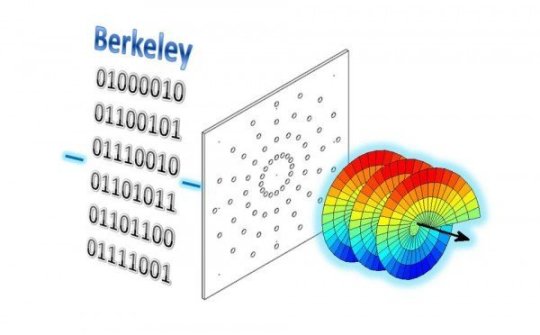
Why We Don’t Speak Up — We must ‘Peer’ into Each Other’s Heart!
Why We Don’t Speak Up — We must ‘Peer’ into Each Other’s Heart! https://csuiteold.c-suitenetwork.com/wp-content/uploads/2015/06/Why-We-Don-Speak-Up.jpg 750 750 C-Suite Network https://csuiteold.c-suitenetwork.com/wp-content/uploads/2015/06/Why-We-Don-Speak-Up.jpgby Judith Glaser

I’ve studied rejection my whole life. I suppose that it’s a personal thing, and one of my strongest life patterns. You see, I was thrown out from nursery schools for speaking up too much; thrown out of two summer camps when I stepped over the line and orchestrated raids on the boys’ bunks for fun; was put on dunce chairs for speaking up too much in first grade; and was made to stay after school for asking why too much in fifth grade.
Being rejected, expelled or suppressed has been one of the top three fight back themes in my life. Since fear of rejection is hardwired into all of us, I’ve been compelled to study, research, and experiment for three decades looking for a new approach. I’ve tried to find constructive, healthy ways for people to deal with rejection by enabling them to speak up in constructive, candid and caring ways.
Along the way, I’ve discovered that being outspoken requires three things: 1) the courage to speak up, 2) the courage to listen, and 3) the courage to stay in discovery until you find the best way for your voice to be heard. I call that wisdom Conversational Intelligence®.
Why We Don’t Speak Up
People fear rejection in any form of human interaction. Rejection piggybacks on physical pain pathways in the brain. In fact, the same pathways are activated when we are rejected as when we experience physical pain. This is why rejection hurts so much. When we take painkillers, like Tylenol, our feeling of social pain also subsides.
As an organizational anthropologist, I’ve also studied rejection as recorded in human history. Being accepted in the tribe, and staying in the tribe, have been the core behaviors needed to sustain our survival since man first appeared on earth about 1.5 million years ago.
Since we cannot survive alone, tribal behavior — for cohesion, getting along, and fitting in — enables people and cultures to grow and thrive. We are called together to lean in to learn more and be more in “We-centric” universe. If we fear that speaking up will lead to rejection, we may give up our voice, silence our voice or speak our voice in an inauthentic way. These choices enable us to hide but with a deleterious after-affect: Giving up our voice masks our true identity and diminishes our uniqueness. Hence, this decision to silence our voice leads to illness, failure and a disempowered life.
Why We Don’t Listen
My book, Conversational Intelligence: How Great Leaders Build Trust & Get Extraordinary Results, has at its core the most vital principle that holds all of humanity together in conversations, through a simple, primal, and practical primary principle: Listening to connect.
From neuroscientific research, we know how the brain opens up or closes down during conversations. And from our own personal experience, we know that when we work with others as peers, and our peers are open to listen to connect, the quality of our conversations elevates. In addition, our ability to generate new ideas—even different and radically new ideas—elevates, and we trust that we will not be rejected, diminished or judged.
How we listen impacts the quality of our relationships, our partnerships, and our ability to achieve success with others. Listening is not an end in itself, but part of a dynamic process that creates space for growth and engagement, for sharing and discovering, and for enabling new ideas, thoughts, wisdom, and growth to emerge. Listening to connect quells our lower brain – the amygdala – which responds to our visceral and emotional inputs – and creates space for a level of listening that enables us, and others, to feel a sense of appreciation, openness and trust.
People thrive on connection and appreciation, not criticism and judgment. When we listen to connect, we create a platform for peering into each other’s minds without judgment, and for being catalytic in helping each other give birth our next-generation thinking.
Peer-coaching and peering into each other’s minds without judgment have a deep connection that makes both the verb and the noun come alive in a new way!
Peer (verb): To look keenly or with difficult at someone or something; look closely into someone’s eyes, to be just visible.
Peer (noun): A person who is equal to another in abilities, qualifications, age, background and social status; something or someone of equal worth or quality.
Why We Don’t Stay in Discovery
Coaching Conversations that trigger exclusion and judgment cause us to recoil from speaking up and diminish the engagement we have with others. Coaching Conversations that make us feel like our territory has been limited or taken away, or that people are withholding information from us, cause us to feel diminished, and not part of the team.
When we judge others, their brain and heart close down. When we appreciate others, our brain and heart opens up. Creating a nurturing, appreciative culture keeps our brains open to contemplate and share novelty and newness. When we listen to connect, we set the stage for birthing the new and communicating in ways that support making better decisions.
Peer Coaching Conversations that make us feel stupid or punish us for speaking up send us into flight, fight, freeze or appease behaviors—ones fueled by our primitive brain. Coaching Conversations that stir up self-doubt or cause us to want to get back at others trigger high negative emotions that block our best thinking and turn us from friend to foe.
The power of learning to have Intelligence Coaching Conversations happens when:
- We peer into each other’s eyes without judgment but with candor and caring and with the intention of creating and catalyzing growth in others.
- We listen to feedback and have an open heart to take in new insights—we then end up feeling good about ourselves and empowered to try new things.
- We give feedback in healthy ways – with candor and caring. As our listening expands, our brain (prefrontal cortex or executive brain) opens up to help us absorb and use the feedback in healthy and constructive ways.
Intelligent Peer-Coaching is a sub-set of Conversational Intelligence. It’s the practice and the power to elevate our collective ability to be open to and be skilled at giving and receiving healthy developmental feedback.
 Judith E. Glaser is the CEO of Benchmark Communications, Inc. and the Chairman of The Creating WE Institute. She is the author of the best selling book, “Conversational Intelligence” (Bibliomotion, 2013), an Organizational Anthropologist and a consultant to Fortune 500 companies.Visit her at creatingwe.com; conversationalintelligence.com or contact her at jeglaser@creatingwe.com. Follow Judith on Twitter @CreatingWE or connect with her on Facebook.
Judith E. Glaser is the CEO of Benchmark Communications, Inc. and the Chairman of The Creating WE Institute. She is the author of the best selling book, “Conversational Intelligence” (Bibliomotion, 2013), an Organizational Anthropologist and a consultant to Fortune 500 companies.Visit her at creatingwe.com; conversationalintelligence.com or contact her at jeglaser@creatingwe.com. Follow Judith on Twitter @CreatingWE or connect with her on Facebook.




